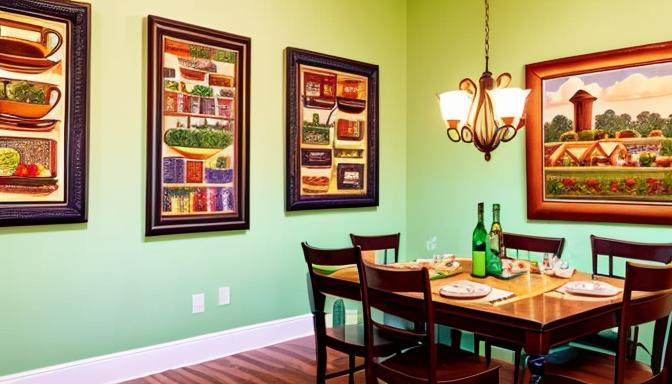The American South is a captivating mosaic of language and culture, where every word spoken carries the weight of history and every tradition echoes the past. The region’s unique dialects are not just a means of communication; they are a window into the soul of Southern identity. From the charming drawl of a Georgian to the rhythmic cadence of a New Orleans native, each variation tells a story. Have you ever noticed how a simple phrase can evoke a sense of belonging? That’s the magic of Southern slang!
Take, for instance, the way Southerners express warmth and hospitality. Phrases like “y’all” and “bless your heart” are more than just words; they embody a culture steeped in friendliness and community. It’s fascinating how these linguistic quirks can create bonds among people, making strangers feel like family in an instant. This linguistic diversity is a reflection of the region’s rich history, influenced by Native American, African, and European languages.
Furthermore, Southern culture is a vibrant tapestry woven with traditions that shape daily life. The sounds of bluegrass and jazz fill the air, while the aroma of soul food wafts through kitchens, creating a sensory experience that is unmistakably Southern. These cultural nuances not only preserve heritage but also foster a sense of unity among the people. In the South, language and culture are intertwined, creating a unique identity that continues to thrive.
Southern Dialects and Their Significance
When you step into the American South, you’re not just entering a geographical region; you’re diving headfirst into a vibrant linguistic landscape that bursts with color and character. Southern dialects are more than just a way of speaking; they are a reflection of history, culture, and the rich tapestry of experiences that have shaped the South over centuries. From the rolling hills of Tennessee to the bayous of Louisiana, each area boasts its own unique expressions and pronunciations, creating a delightful mosaic of voices.
Consider the variety of Southern slang that pepper conversations. Words like “y’all” and “fixin’ to” aren’t just colloquialisms; they are badges of regional pride that connect people through shared understanding. These phrases embody a sense of community and warmth, inviting others to join in the conversation. It’s fascinating how a simple phrase can evoke feelings of belonging and nostalgia, isn’t it?
Moreover, the significance of these dialects extends beyond mere communication. They are intertwined with cultural nuances that define Southern identity. For instance, the distinct pronunciation of certain words can hint at a person’s upbringing or the specific neighborhood they hail from. This linguistic diversity is not just an interesting quirk; it serves as a reminder of the historical influences that have shaped the South, from African American Vernacular English to the rich tapestry of immigrant languages.
In essence, Southern dialects are a living testament to the region’s cultural heritage. They foster connections, preserve traditions, and enrich the fabric of Southern life. So, the next time you hear that charming drawl or a clever turn of phrase, remember: it’s not just a way of speaking—it’s a story waiting to be told.

Cultural Traditions and Their Impact
The American South is a vibrant mosaic of cultural traditions that shape not only the identity of its people but also the essence of the region itself. From the soulful strains of bluegrass music that echo through the Appalachian mountains to the tantalizing aromas of Southern cuisine wafting through the air, these traditions are the heartbeat of Southern life. Have you ever experienced the joy of a community gathering, where the air is thick with the sounds of laughter and the smell of fried chicken? It’s in these moments that you truly feel the power of tradition.
Southern traditions are not just about the past; they are living, breathing practices that foster a sense of belonging. For instance, take the rich tradition of storytelling, where elders pass down tales that weave together history, humor, and life lessons. This practice not only preserves the heritage of the South but also strengthens community bonds, creating a tapestry of shared experiences. In many ways, storytelling is akin to the way a quilt is made—each patch representing a unique story, yet all stitched together to form a beautiful whole.
Moreover, Southern festivals, such as Mardi Gras and the various county fairs, serve as a celebration of culture and community. These events are not merely about fun; they are a showcase of regional dialects and slang, allowing locals to express their identities through language, food, and music. As you immerse yourself in these festivities, you can’t help but appreciate how Southern slang and regional dialects add a distinctive flavor to conversations, making them feel warm and inviting.
In essence, the cultural traditions of the South are a testament to its resilience and creativity. They remind us that while the world may change, the heart of the South beats strong, echoing the voices of its past while paving the way for future generations.
Frequently Asked Questions
- What are some unique features of Southern dialects?
Southern dialects are rich with unique expressions, idioms, and pronunciations that reflect the region’s history. For example, you might hear phrases like “y’all” or “fixin’ to,” which are quintessentially Southern. These linguistic quirks not only enhance communication but also create a sense of belonging among locals.
- How do cultural traditions shape Southern identity?
Cultural traditions in the South, such as music genres like blues and country, and culinary practices like barbecue and soul food, are vital in shaping community identity. They foster connections among people and preserve the rich heritage of the region, making each gathering a celebration of shared history and pride.
- Why is Southern culture so diverse?
The diversity of Southern culture stems from its complex history, including influences from Native American, African, and European traditions. This melting pot has resulted in a vibrant tapestry of customs, languages, and artistic expressions that continue to evolve while honoring their roots.